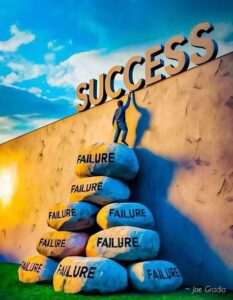
Turning a dream into reality is both an inner and outer journey — it’s about mindset, strategy, and persistence. Here’s a practical, step-by-step roadmap you can follow:
⸻
1. Define the Dream Clearly
• Be specific. Write down exactly what you want — not just “I want to be successful,” but “I want to start my own design business by 2027.”
• Visualize it. Picture what success looks and feels like in detail.
• Clarify the why. Ask yourself why this dream matters to you; your “why” will keep you motivated when things get tough.
⸻
2. Turn the Dream into a Goal
• Make it measurable. Break it into concrete, trackable objectives (SMART goals — Specific, Measurable, Achievable, Relevant, Time-bound).
• Set milestones. Divide the journey into stages so progress feels achievable.
Example: Learn the skills → Build a prototype → Launch → Scale.
⸻
3. Create a Realistic Plan
• Outline action steps. What needs to happen each week or month?
• Identify resources. Who or what can help — mentors, courses, money, tools, networks?
• Anticipate challenges. Think ahead about obstacles and how you’ll overcome them.
⸻
4. Build the Right Habits
• Work consistently. Even small daily actions compound over time.
• Prioritize. Focus on what moves you forward most.
• Track progress. Review your progress weekly or monthly; adjust when needed.
⸻
5. Strengthen Your Mindset
• Believe it’s possible. Self-doubt kills more dreams than failure ever could.
• Stay adaptable. Be willing to learn, pivot, and grow as you go.
• Surround yourself with support. Choose people who uplift and challenge you.
⸻
6. Take Action (and Keep Going)
• Start now. Don’t wait for perfect conditions — momentum builds clarity.
• Embrace failure as feedback. Every mistake teaches something valuable.
• Celebrate wins. Reward yourself for progress, even the small victories.
⸻
7. Reflect and Refine
• Regularly reassess. Is your dream evolving? Adjust your plan if needed.
• Stay aligned. Make sure your dream still fits your values and vision.
~ Joe Gradia



